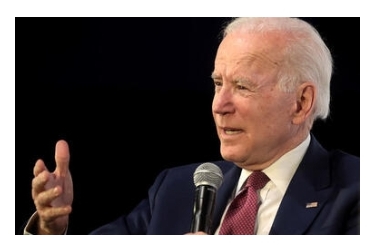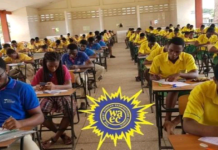Just hours after the Supreme Court of the United States (SCOTUS) struck down President Joe Biden’s plan announced last August, to forgive US$430 million in student debt held by some 40 million Americans, the president spoke to the nation explaining his plans going forward.
The six Republican-appointed justices ruled that the centrepiece of Biden’s plan, forgiving US$10,000 for people earning less than US$125,000 (US$250,000 for married couples) and up to US$20,000 for former Pell Grant recipients, the nation’s poorest students, was unconstitutional.
The Higher Education Relief Opportunities for Students (HEROES) Act did not give the president the power to extinguish student debt, the court said.
However, the SCOTUS left in place the Public Service Loan Forgiveness (PSLF) program and the Income-Driven Repayment (IDR) Plan.
Under the PSLF, individuals who work in the public service and who have been making loan repayments for 10 years, will see the remainder of their student loan debt erased. The IDR Plan caps payments at, typically, 5% for individuals whose gross income is greater than US$33,000; if an individual’s income is less, they make no payments.
The president began by slamming the ‘hypocrisy’ of the Republicans in Congress who supported the Paycheck Protection Program, “Which was designed to help business owners who lost money because of the pandemic. It was a worthy program.
“But let’s be clear, some of the same elected Republican members of Congress (eg congressional firebrands Matt Gaetz, Marjorie Taylor Greene and Lauren Boebert) who strongly opposed aid to students got hundreds of thousands of dollars themselves because of the businesses they were able to keep open.
“Several members of Congress got over a million dollars of all those loans forgiven,” he said.
After saying that he “Believes that the court’s decision to strike down my student debt relief program was mistaken and wrong” and promising that he will “not stop fighting to deliver borrowers what they need, particularly those at the bottom end of the economic scale”, Biden explained that Secretary of Education Miguel Cardona had already taken the first steps toward re-establishing the plan under the Higher Education Act.
“This new path is legally sound. It’s going to take longer, and in my view is the best path that remains to provide as many borrowers as possible with debt relief,” the president said.
For the tens of millions of borrowers who in October, when the last pause in collections caused by the COVID crisis expires, would find their monthly budgets stretched by hundreds of dollars in payments, Biden announced a “temporary 12 month . . . on ramp”, before payments must commence; during this period “bills will not go out”.
To remove the threat of default during this period, the Department of Education “won’t refer borrowers who missed payments to credit agencies for 12 months to give him a chance to get back up and running”.
Although Dr Alí Bustamante, deputy director of the New York-based Roosevelt Institute’s Worker Power and Economic Security Program, welcomed Biden’s announcement, he is expecting legal pushback by the opponents of Biden’s debt relief plan.
“In terms of whether the Supreme Court would find for refounding the debt relief plan under the Higher Education Act, I think that the obstacle is still very much the same,” he said.
“The main issue is hanging on the phrase in the Act ‘comprise, waive, release loans’ under certain circumstances. Accordingly, they could use the same reasoning they did in this case to strike down Biden’s plan even when founded under the Higher Education Act.”
However, after noting that there are more than 40 million people affected by the Supreme Court’s decision, Bustamante also said that he hopes Biden rallies his supporters and campaigns on the issue in the 2024 election.
Parties Divided In Reaction
Reaction to the court’s decision broke along party lines, with Republicans warmly welcoming it.
Senator Mitt Romney (Utah), who 10 months ago accused the president of bribing the voters prior to the 2022 midterm elections, continued the theme: “What was already an unfair play to induce voters has now been blocked as executive overreach.”
Mitch McConnell (Kentucky), leader of the minority Republicans in the Senate, continued to call Biden’s plan ‘socialism’.
“The American people know that the Biden administration’s student loan socialism plan would be a raw deal for hardworking taxpayers … The president of the United States cannot hijack twenty-year-old emergency powers to pad the pockets of his high-earning base and make suckers out of working families who choose not to take on student debt.
“The court’s decision today deals a heavy blow to Democrats’ distorted and outsized view of executive power.”
As he had in his statement supporting the SCOTUS’s decision that struck down race-conscious admissions, former vice president and, candidate for the 2024 Republican nomination, Mike Pence drew attention to his “hav[ing] played a role in appointing three of the Justices that ensured today’s welcomed decision” and pledged that if elected, he “will continue to appoint judges who will strictly apply the law and enforce our Constitution’s separation of powers”.
Of the SCOTUS’ ruling itself, Pence wrote on Twitter: “Joe Biden’s massive trillion-dollar student loan bailout subsidises the education of elites on the backs of hard-working Americans, and it was an egregious violation of the Constitution for him to attempt to do so unilaterally with the stroke of the executive pen.
“I am pleased that the court struck down the Radical Left’s effort to use the money of taxpayers who played by the rules and repaid their debts in order to cancel the debt of bankers and lawyers in New York, San Francisco, and Washington, DC.”
South Carolina senator Tim Scott, the only black Republican senator, who is also running for the 2024 Republican nomination, quickly produced a 30-second advertisement in which he said, in part, “Joe Biden wants you to pay off the student loans of lawyers and professors. I want to strengthen vocational education and apprenticeships. We need more welders, carpenters and electricians. These are the jobs that built America, and these are the jobs that liberal elites can’t ship to China.”
In a series of Tweets, Robert Kennedy Jr, who is challenging Biden for the 2024 Democratic nomination, sounded like a Republican. “President Biden knew his plan wouldn’t survive a legal challenge. His plan gave the appearance of action, while accomplishing nothing.
“This is an issue of grave importance to our country. As president, I will galvanise public support to pressure Congress to put down their partisan positions and legislate meaningful relief to the tens of millions of Americans who are drowning in student debt.”
Democrats Say Decision Is ‘cruel’
The Democratic leadership in the Congress angrily denounced the SCOTUS’s decision. Majority Leader in the Senate, Chuck Schumer (New York) issued a statement saying, “This disappointing and cruel ruling shows the callousness of the MAGA Republican-controlled Supreme Court.
“The hypocrisy is clear: as justices accept lavish, six-figure gifts [from wealthy Republican donors], they don’t dare help Americans saddled with student loan debt, instead [they are] siding with powerful, big-monied interests. The fight will not end here.”
Massachusetts Senator Elizabeth Warren (Democrat), who has long called for federal action to relieve student debt, tweeted: “More than 40 million hard working Americans are waiting for the help that President Biden promised them, and they expect this administration to throw everything they’ve got into the fight until they make good on this commitment.”
Republican-appointed justices vote as block
Biden’s second address to the nation in as many days on a SCOTUS decision – the first being the overturning of race-based admissions in colleges and universities – was also occasioned by a 6-3 decision in which the six Republican-appointed Supreme Court justices voted as a block.
In his majority decision, Justice Samuel Alito, argued that Cardona, exceeded the meaning of the word “modify” in the clause of the HEROES Act that says the Secretary may “waive or modify any statutory or regulatory provision applicable to the student financial assistance program under Title IV of [the Education Act] as the Secretary deems necessary in connection with a war or other national emergency”.
Following the ‘originalist’ school of legal philosophy, Alito holds that laws and the Constitution should be interpreted using the ordinary meaning of the words and not by taking into account such extra-legal or -constitutional sources such as congressional debates.
Alito turned first to a 1994 case, in which the court ruled that statutory permission to ‘modify’ does not allow for “basic and fundamental changes in the scheme” designed by Congress. Rather, the court said at the time, “modify” carries “a connotation of increment or limitation,” and must be read to mean “to change moderately or in minor fashion”.
Alito then invoked both Webster’s Third New International Dictionary, published in 1952, and the 11th edition of Black’s Law Dictionary, published in 2019, to back up his interpretation that the Secretary of Education went beyond ‘modifying’ the federal student loan system by cancelling student debt.
Webster’s, Alito wrote, defines ‘modify’ as “to make more temperate and less extreme, to limit or restrict the meaning of,” or “to make minor changes in the form or structure of [or] alter without transforming”. Black’s gives two definitions for ‘modify’: 1) “[t]o make somewhat different; to make small changes to,” and 2) [t]o make more moderate or less sweeping”.
The core of Alito’s decision is that the changes announced last August “were not ‘moderate’ or ‘minor’.” Instead, they created a novel and fundamentally different loan forgiveness program.
Alito argued that, because the new program vests authority in the Department of Education to discharge up to US$10,000 for every borrower with income below US$125,000, and up to US$20,000 for every such borrower who has received a Pell Grant, “no prior limitation on loan forgiveness is left standing”.
Alito wrote: “Instead, every borrower within the specified income cap automatically qualifies for debt cancellation, no matter their circumstances. The Department of Education estimates that the program will cover 98.5% of all borrowers.”
In colourful language, Alito wrote: “The secretary’s plan has ‘modified’ the regulations about debt repayment, only in the same sense that the French Revolution ‘modified’ the status of the French nobility” – it has abolished them and supplanted them with a new regime entirely.
In her concurring opinion, justice Amy Coney Barrett focused on the so-called ‘major questions doctrine’. The major questions doctrine, Barrett wrote citing a decision handed down in 2000, “serves as an interpretive tool reflecting ‘common sense as to the manner in which Congress is likely to delegate a policy decision of such economic and political magnitude to an administrative agency’.”
As Carlo Salerno, an education economist who recently testified before Congress on student debt explained, the major questions doctrine bears on the meaning of ‘modify’.
“What does modify mean? Does it modify, meaning tweak a program? Or does modify mean, you essentially are able to wholly revamp a spending program to begin with?” Salerno asks.
“Are you taking a program, and moving it to a different level that requires more oversight, and particularly requires congressional oversight, since they are the ones who hold the power to spend?”
Barrett, who has seven children, asks readers to engage in a thought experiment about a babysitter who took her charges on a two-day vacation on the strength of their parents’ statement to have fun and tickets to the amusement park.
“Just as we would expect a parent to give more than a general instruction if she intended to authorise a babysitter led get-away, we also ‘expect Congress to speak clearly if it wishes to assign to an agency decisions of vast ‘economic and political significance.’”
Dissenting Judges Question Hearing Of Case
In her dissent, Justice Elana Kagan, which was signed by Justices Sonia Sotomayor and Ketanji Brown Jackson, argues that the court never should have taken the case because the plaintiffs, several states, and the Missouri Higher Education Loan Authority, lacked standing.
“Under Article III of the Constitution, a plaintiff must have stood to challenge a government action. And that requires a personal stake – an injury in fact. We do not allow plaintiffs to bring suit just because they oppose a policy. Neither do we allow plaintiffs to rely on injuries suffered by others. Those rules may sound technical, but they enforce ‘fundamental limits on federal judicial power’.”
Kagan also challenged the majority’s reading of the phrase ‘waive or modify’.
“Congress may have wanted the secretary to have wide discretion during emergencies to offer relief to student-loan borrowers. Congress in fact drafted a statute saying as much. And the secretary acted under that statute in a way that subjects the president he serves to political accountability – the judgment of voters,” she said.
“But none of that is enough. This court objects to Congress’ permitting the Secretary (and other agency officials) to answer so-called major questions. Or at least it objects when the answers given are not to the court’s satisfaction.
“So the court puts its own heavyweight thumb on the scales. It insists that ‘however broad’ Congress’s delegation to the Secretary, it [the court] will not allow him to use that general authorisation to resolve important issues,” Kagan said.
“The question, the majority helpfully tells us, is ‘who has the authority’ to make such significant calls. The answer, as is now becoming commonplace, is this court.”
Disingenuous Arguments
Republican attacks, like Senator Scott’s, on Biden’s debt repayment plan as being a gift to doctors and lawyers, are disingenuous at best.
Total student debt has risen to US$1.6 trillion. This has become a critical issue because almost all of it is held by the US federal government and 16% of the more than 43 million borrowers are in default.
“President Biden’s decision to cancel student loan debt for millions of borrowers is the right move at the right time, particularly after the pandemic-related financial and health struggles so many Americans have faced,” Ted Mitchell, president of the Washington DC-based American Council on Education (ACE), the major coordinating body for the nation’s colleges and universities, told University World News last August.
“We particularly applaud the focus on low-income borrowers,” he added.
According to the White House, nearly one-third of student loan borrowers (14,191,000 people) were unable to complete their education because of the cost of their student debt – meaning they left higher education with debt but no diploma. Some 16% of borrowers (7.2 million people) are in default; one-third of these are senior citizens.
Disproportionate impact on black Americans
The Supreme Court’s decision to strike down Biden’s debt relief plan will have a disproportionate impact on black Americans, who, because they are among the poorest Americans, borrow a greater percentage of the funds needed to pay for college and university than do other Americans.
Last August, the White House said: “Twenty years after first enrolling in school, the typical black borrower who started college in 1995-96 still owed 95% of their original student debt.”
The reasons for this are many, including lower salaries earned after graduation as well as the fact that black students typically have significantly less family capital to draw on to finance higher education.
According to the Education Data Initiative, the average black college student owes US$52,000 in debt, almost double the student debt owed by white Americans.
“Black people have less household wealth than the majority population in this country,” says Loriguez. And with that, once they get into higher education, after showing tremendous aptitude, [they] have to borrow more – not just black students at historically black colleges and universities (HBCUs) but black students that go to any college or university in the country,” says Rodriguez V Murray, the Washington DC-based United Negro College Fund’s senior vice president of public policy and government affairs.
“The fact that the proposal [Biden’s debt relief plan] has been stripped out means that there is going to be continued, onerous payments shouldered by that population.”
Double Blow For Black Americans
The decision striking down Biden’s debt relief program was handed down 24 hours after the SCOTUS struck down race-conscious college and university admissions policies – and, thus, was a second, serious, blow to black Americans seeking higher education.
According to Dr John A Douglass, a senior research fellow and research professor at the Public Policy and Higher Education at Berkeley University: “The court’s decision to ban use of race in university admission not only overturns long-held precedent that balances individuals’ rights with the larger social purpose of universities, allowing it to be one factor in many, it also is a severe erosion of the autonomy of these institutions.
“Precedents outlined since the 1950s by the court, the Bakke case, and later decisions, deferred to universities in their expertise and role in society to determine admission criteria. The court is thus adding to a political movement in the US by largely right-wing actors to interfere in the curriculum and programs as well as governance and accreditation of universities.”
Bustamante says the decisions form a pattern.
“What I see is a court majority that wants to maintain the status quo. We see the Supreme Court putting a limit on the progress that followed the Civil Rights Act of the 1960s and bringing down walls and barriers that have historically excluded African Americans and other racial and ethnic minorities. They’re putting a hard stop on that progress,” Bustamante told UWN.
For his part, when I asked Loriguez about the impact of two decisions, he thought for a moment and then said, “I reflect back on how historically black colleges and universities were founded . . .. in the basement of churches because that was a time period when African Americans were still punished for learning to read and write.
“HBCUs and us as black people, we have had to have one particular trait and that is resilience; we’ve had to be resilient in the face of opposition.
“That opposition has changed. Back in the 1860s the opposition was to us learning to read and write, and our lives were in jeopardy.
“But nowadays, the opposition looks very different. The opposition looks like getting rid of affirmative action. The opposition looks like doing away with a plan that would have had a disproportionately positive impact on black household debt and the improving of economic life.
“But even though the resistance has changed, the character trait for us to overcome and still make great improvements, remains resiliency.”
Democracy ‘undermined by judiciary’
The details of American constitutional law may not concern those outside the United States, but when I asked Bustamante what the SCOTUS’ decisions mean for people who may have looked to the United States as a model, albeit a flawed one, of a democratic country, he began his answer setting it in the wider question of the state of democracy around the world.
“We’re living in a moment, globally, when there’s a sense that the project that is democracy is under attack, both literally and figuratively. A key promise of the idea of democracy is that people will have the ability to self-determine their future and to be able to have a voice and the ability to pursue opportunities for economic, social and political progress.
“What we’re seeing with the rulings this week, and with other groups of opinions released this year, is that democracy is being largely undermined by our judicial system.”
Among the rulings Bustamante was referencing was the one handed down a few minutes before the SCOTUS announced it was striking down Biden’s debt relief plan, which was a blow to LGBTA+ rights.
It said that a website designer could refuse to create a wedding website for a gay man because of her religious convictions against gay marriage.
“It’s not just the Supreme Court. It’s not just the federal courts and the state courts and in the south local courts,” Bustamante says. “We are in a critical moment when American democracy is under attack; we have this very concerted attack from the legislature and from the judiciary that wants to stop progress.
“People outside the United States need to understand that American democracy is not well. That right now it is not functioning as it’s supposed to. That right now, we have a very fragile democracy that is being attacked from outside [eg, by those who deny election results] but also at its core, its judiciary and congressional and state legislatures, which have passed bills restricting voting rights of blacks.”
University World News














